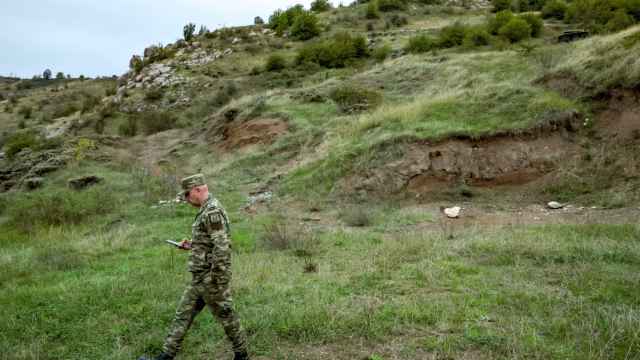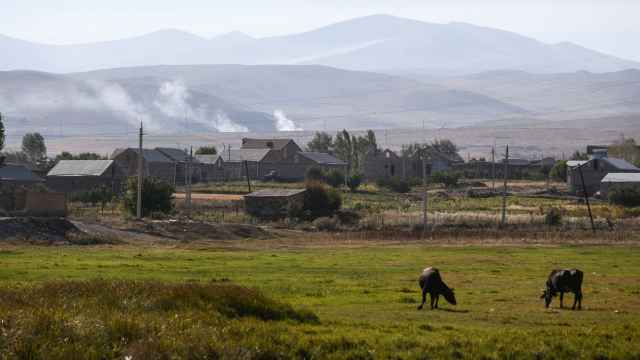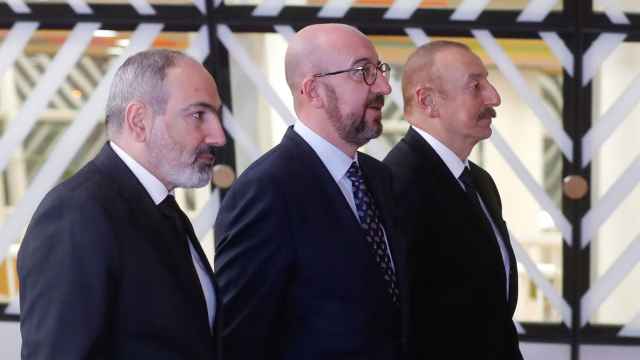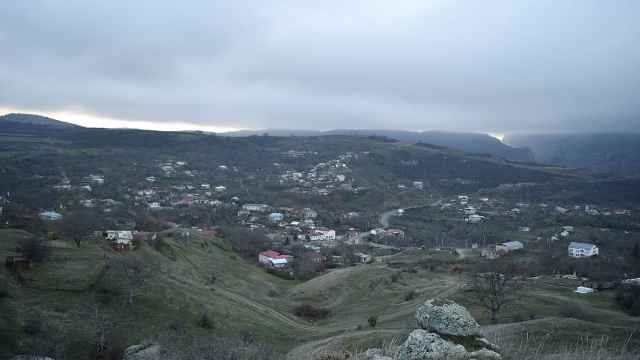Armenia and Azerbaijan held peace talks on Monday, mediated by the United States, just hours after a fresh shootout along their troubled border in a conflict which has left hundreds dead in recent months.
U.S. Secretary of State Antony Blinken hosted the foreign ministers of the rival nations.
"The United States is committed to the peace negotiations between Armenia and Azerbaijan," Blinken said before the meeting. "Direct dialogue is the best way to a truly durable peace, and we are very pleased to support that."
An American official, speaking on condition of anonymity, said the meeting was less about peace negotiations in the full sense of the term, and more about providing an opportunity for the warring parties to meet and talk.
A week ago, Armenian Prime Minister Nikol Pashinyan and Azerbaijani President Ilham Aliyev "agreed not to use force" to resolve their dispute over the Nagorno-Karabakh territory, during a summit in Russia hosted by President Vladimir Putin.
However, in the early hours of Monday, Azerbaijani forces opened fire on Armenian positions in the eastern sector of the Armenian-Azerbaijani border, the defense ministry in Yerevan said in a statement, adding there had been no casualties.
Meanwhile, Azerbaijan's defense ministry accused Armenian forces of shooting at the positions of Azerbaijani troops stationed at several locations on the frontier.
Kremlin spokesman Dmitry Peskov on Monday called on both parties to "refrain from the actions and steps that could lead to an escalation of tensions."
Yerevan and Baku fought two wars over the disputed territory of Nagorno-Karabakh — in autumn of 2020 and in the 1990s.
Six weeks of fighting in 2020 claimed more than 6,500 lives before a Russian-brokered truce ended the hostilities.
Under the 2020 deal, Armenia ceded swathes of territory it had controlled for decades, and Russia stationed peacekeepers to oversee the fragile ceasefire.
There have been frequent exchanges of fire at the Caucasus neighbors' border since the 2020 war.
In September, more than 280 people from both sides were killed in new clashes.
When the Soviet Union collapsed in 1991, ethnic Armenian separatists in Nagorno-Karabakh broke away from Azerbaijan. The ensuing conflict claimed around 30,000 lives.
A Message from The Moscow Times:
Dear readers,
We are facing unprecedented challenges. Russia's Prosecutor General's Office has designated The Moscow Times as an "undesirable" organization, criminalizing our work and putting our staff at risk of prosecution. This follows our earlier unjust labeling as a "foreign agent."
These actions are direct attempts to silence independent journalism in Russia. The authorities claim our work "discredits the decisions of the Russian leadership." We see things differently: we strive to provide accurate, unbiased reporting on Russia.
We, the journalists of The Moscow Times, refuse to be silenced. But to continue our work, we need your help.
Your support, no matter how small, makes a world of difference. If you can, please support us monthly starting from just $2. It's quick to set up, and every contribution makes a significant impact.
By supporting The Moscow Times, you're defending open, independent journalism in the face of repression. Thank you for standing with us.
Remind me later.






